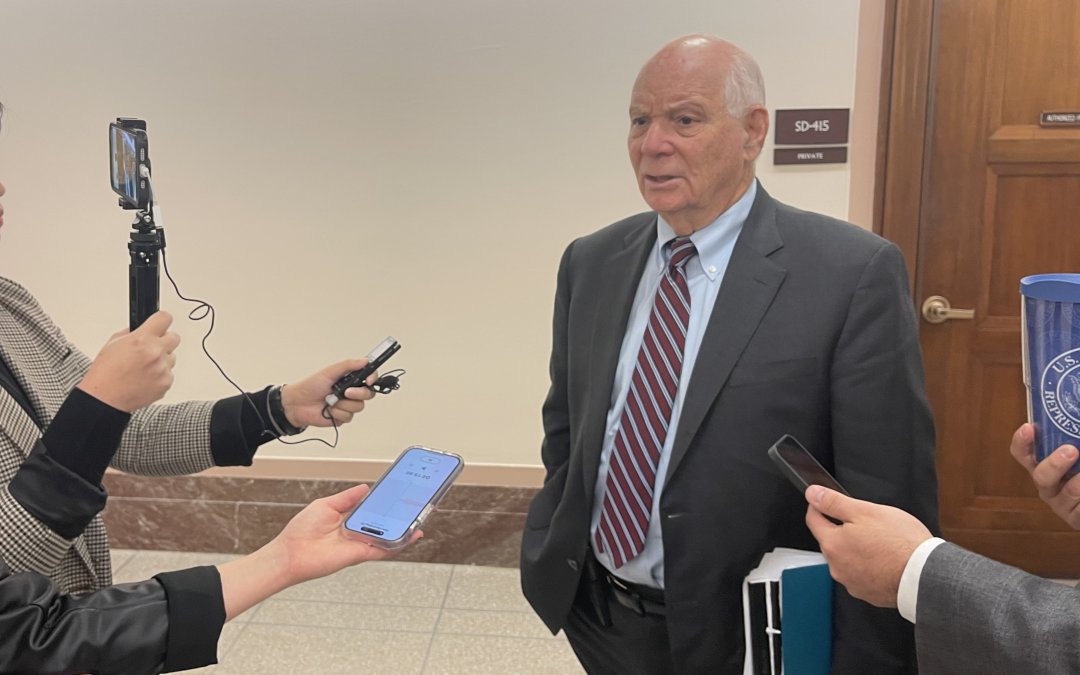WASHINGTON — Assistant Secretary of State of African Affairs Molly Phee defended the State Department’s response to the July coup in Niger, pushing back on assertions from senators that the Biden administration hasn’t been forceful enough in condemning the West African nation’s new government.
The Biden administration has yet to impose formal financial sanctions on Niger, which saw its democratically elected president overthrown by military officers in late July. Instead, the State Department announced in early October that it was suspending U.S. assistance to Niger totaling about $500 million.
“We are actively and continuously looking at options for sanctions,” said Phee, the sole witness at Tuesday’s Senate Foreign Relations Committee hearing. “But in the current approach, we’re trying to direct [Niger’s leaders] back to a democratic transition. That’s a factor in the assessment.”
However, senators on Tuesday, including Chairman Sen. Ben Cardin (D-Md.), expressed frustration with the administration’s decision not to impose sanctions on Niger, citing a “shift in policy.” The U.S. typically uses economic sanctions to punish countries that work against its interests.
Following Nigerien President Mohamed Bazoum’s ouster from power in July, General Abdourahamane Tchiani — former leader of the nation’s Presidential Guard — declared himself leader of a new junta, the country’s military government. The coup came more than two years after Niger’s first democratic transition of power since gaining independence from France in 1960.
Additionally, Cardin criticized the Biden administration’s decision to not formally designate the power shift in Niger as a coup until Oct. 10, more than two months after the takeover had taken place.
“To me, it’s giving the wrong signals looking at the number of coups we’ve seen in this region,” Cardin said. “The consequences won’t be there.” Nations in West and Central Africa have recorded at least eight coups since 2020.
In response, Phee said government leaders in West Africa — including Ghana, Senegal, Ivory Coast and Nigeria — had asked State Department officials to delay naming the overthrow a coup, as they were aiming to restore Bazoum back to power. The former Nigerien president has been held hostage since July with the U.S. and its allies calling for his release.
Senators at the hearing also questioned the U.S.’s continued military presence in Niger, which was one of the U.S.’s few allies in the region prior to the coup. More than 1,100 U.S. troops are currently stationed in Niger — a presence that Phee referred to as important to the region — to aid the nation’s forces in combatting terrorism. France’s recent withdrawal of troops from the region, however, has increased speculation that the U.S. may follow suit.
The Senate may vote later this week on the future of the U.S.’s military presence in Niger, Cardin said.
Committee members, including Ranking Member Sen. James Risch (R-Idaho), also discussed terrorism in Niger and surrounding countries. The Sahel — the region of Africa spanning from the Atlantic Ocean to the Red Sea that includes 10 countries — is now considered the world’s “epicentre for terrorism,” according to the Global Terrorism Index. The region has accounted for 43% of all deaths resulting from terrorism in 2022.
“The primary threat is Islamic Terrorism,” Risch said of the Sahel region. “Large parts of Mali and Burkina Faso are controlled by groups linked to Al Qaeda and the Islamic State. Terrorist groups are expanding their attacks on governments and populations in many countries.”
To respond to these threats, Phee said she recommends the U.S. Congress strengthen the Trans-Sahara Counterterrorism Partnership, a strategy established in 2005 that aims to assist North and West African countries in combatting terrorist threats.
Though Tuesday’s hearing focused primarily on Niger and West African nations, Phee also shared new information on U.S. efforts to address the war in Sudan. More than 9,000 people are estimated to have been killed in the more than six-month-long conflict between the Sudanese military and a paramilitary group.
According to Phee, U.S. Secretary of State Antony Blinken will meet with an African co-facilitator in Jeddah, Saudi Arabia on Thursday to pursue a ceasefire in Sudan and an end to hostilities. She added that about 100 Sudanese civilians are also currently meeting in Addis Ababa, Ethiopia’s capital, to form a pro-democracy civilian front.
“There’s a lot of division among the Sudanese folks, but we’re actively encouraging those dialogues,” Phee said. “We hope that this is the start of a serious process to form the next government of Sudan and to serve as a counterweight to the security forces.”


